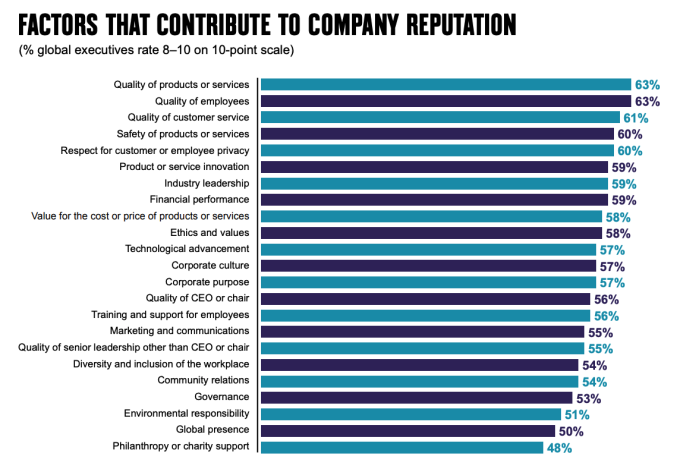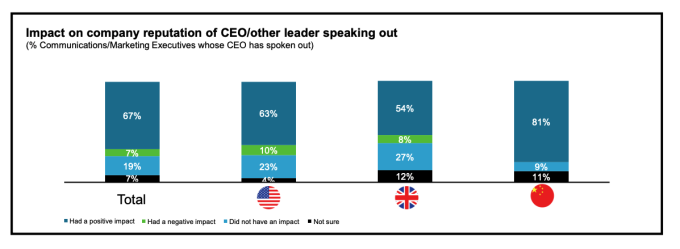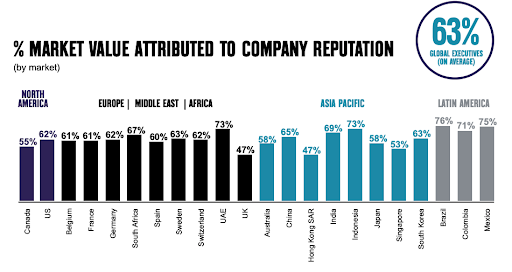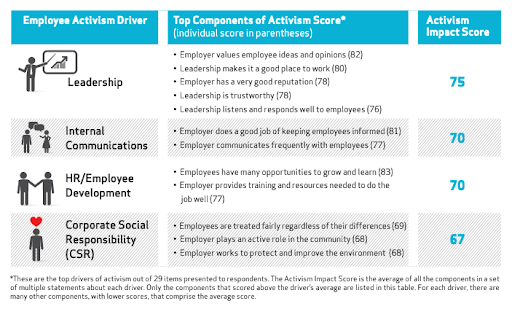Late December last year Valotalive published the typical blog post discussing five possible trends for communication in the new year. However, no one could possibly foresee how 2020 would come to transform lives, both personal and working, around the globe.
While most is still uncertain one thing remains clear and that is open and transparent communication is vital in turbulent times. This is especially pertinent for leaders to help minimize the anxieties many of their employees are facing now.
This blog post will explore the role of leadership communication in nurturing positive company reputations and employee engagement. These are essential elements for all businesses to cultivate continuously, not just in difficult times.
Corporate Reputation
Everyone has an opinion and it seems people today, especially with the help of social media, are bolder in sharing it. How people/customers feel and what they say about your company matters considerably.
It is vital to safeguard your business’s reputation but it is also a multifaceted issue. A 2020 report by Weber Shandwick and KRC Research on the state of corporate reputation highlights that reputation is “omnidriven” meaning it is impacted by many facets and at all sides.
The chart below, taken from the study above, highlights the many different drivers. When you take a closer look at the chart, several of its factors are directly impacted by leadership organization.



Employee Experience (EX)
EX is an employee-first approach to improving all of the employees’ experiences at work. It affects employee engagement, HR recruitment ability, and retention rates but also the company’s bottom lines. Leadership plays a vital role in ensuring employees are engaged, informed, and motivated.
A report by Deloitte last year highlighted that communicating value can also greatly impact employee experience, or what they called the human experience.
It stated that “If an organization can articulate a purpose that matters across stakeholders, it will get an impact, but if it can also tap into the purpose and meaning for the workforce and connect to what matters for the customer, the effect will amplify.” This means that when employees understand why they are doing something and how it positively contributes to the lives of others they have a deeper understanding of their own purpose (in work and life), which positively affects their motivation and happiness at work.
Another study by Weber Shandwick and KRC Research highlighted that leadership is an important driver in employee activism (i.e. positive and/or negative actions employees do for or against their company). The chart below highlights that leadership, which is open, trustworthy, and cares about employee experience helps to cultivate greater employee support, which in turn boosts revenue.

Leaders must understand the strong effect they have on employee motivation and engagement, in both positive and negative ways, to be able to cultivate stronger and healthier relationships at work, improve collaboration, and garner greater commitment to their company’s own values.
Both reputation and EX are greatly impacted by company leaders and their ability to communicate effectively. For a business to thrive its leadership must be thoughtful in how it drives these two important business elements.
Workplace Digital Signage
Workplace digital signage will play an important role in disseminating and amplifying vital leadership communication around offices, manufacturing facilities, and construction sites.
Workplace digital signage will make the process of sharing logistically easier and more strategic, particularly because of automation, integration, and reach.
- Automation ensures the information you share always stays relevant and timely.
- Integration increases transparency to build trust and help keep your employees informed and on track.
- Reach ensures that all your employees have access to vital communications, including non-desk workers.
It is important to now only think about what you communicate but also how and when you say it. Communicate more effectively and strategically with workplace digital signage.
Further reading you might find interesting
Learn more about digital signage for Manufacturing companies
Writer: Jade Rosenkranz is an American communications freelancer living in Helsinki interested in building connections, storytelling, and growth hacking.



